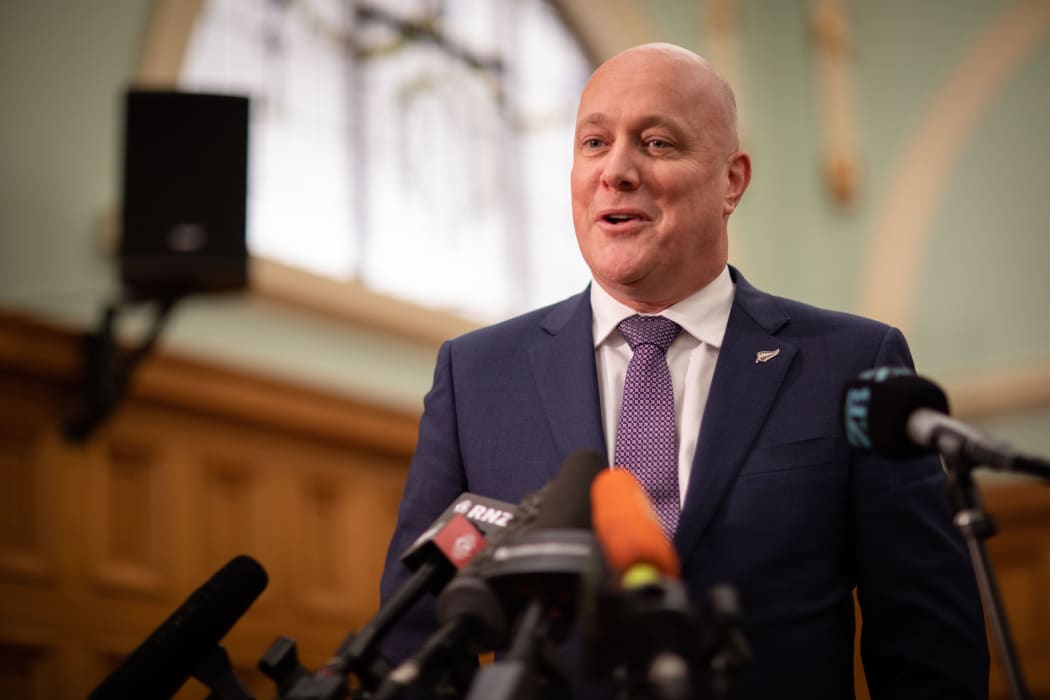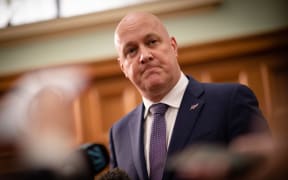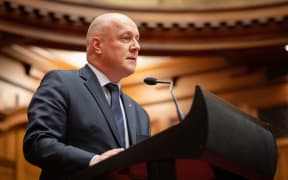Power Play - National has found its version of "Jacindamania" as "Christophoria" buoys the party's popularity - a phenomenon Labour may struggle to counter in this volatile climate.

Christopher Luxon Photo: RNZ / Angus Dreaver
After just 100 days in the job, Christopher Luxon seems to have turned National's fortunes around, lifting the party's support 11 points to reach 39 percent in the 1News Kantar Poll since he seized control late last year.
When Jacinda Ardern took Labour's helm in 2017, the party's support surged an incredible 20 points in the equivalent poll, but dropped back by election night. Labour's final result was up 13 points from when Ardern took over - just shy of 37 percent.
The two leaders' invigorating effect, then, is certainly comparable.
Like Ardern, Luxon has ended a succession of unpopular leaders and a period of woeful polling. Like Ardern, Luxon returned the opposition to looking like a realistic contender.
Luxon has yet to climb as high as Ardern did in the preferred prime minister stakes. Ardern touched 35 percent in opposition, Luxon is at 25.
But another result below the poll headline further drive home Luxon's appeal.
In a head-to-head contest, when asked to choose one leader or the other, voters were split down the middle: Luxon registered 45 percent, Ardern 46.
That is sure to send a shiver down the spines of the Labour caucus.
How has Luxon done it? In part, his appeal is due to his fresh face - simply through not being Judith Collins or Todd Muller, both of whom became toxic to voters.
He has also avoided any major mishaps and in recent months has focused his attention almost single-mindedly on the economy and cost of living.
In truth that is almost certainly what has done the most damage to Labour's support, now at its lowest level since the 2017 election.
Luxon has given the public a realistic option for change, but it is the soaring cost of living which has convinced voters to actually jump ship.
Thursday's poll showed 53 percent of voters were pessimistic about the economy. Just 28 percent were upbeat.
Pair record inflation with the ongoing disruption of an Omicron outbreak and Labour is in an unenviable position. Ardern declined an interview with RNZ, but yesterday attempted to blame the poll on external factors.
"This is one of the hardest moments New Zealand has been through in many years," Ardern told TVNZ.
Labour sources blame the result on a "perfect storm" caused by a global pandemic, energy shock and supply chain issues.
None of those crises have simple fixes, but that doesn't count for much with voters hurting at the petrol pump and supermarket checkout.
Ardern keeps pointing to April when the minimum wage goes up from $20 per hour to $21.20. At the same time, almost 350,000 families will get an extra $20 a week as part of increases to family tax credits. Beneficiaries will also get a $20 boost in April.
But that will go only a very small way to countering inflation. Fruit and vegetable prices are up 17 percent compared to last year. Unleaded petrol has passed $3 per litre in some areas.
National is demanding an array of tax cuts. The Greens want a rent freeze and a focus on public transport.
The May Budget would have been devised while Collins was still National leader and will be mostly baked in, but Finance Minister Grant Robertson will be weighing his options.
Yesterday he declined to rule out making changes to fuel taxes to alleviate pain at the pump.
Robertson has already foreshadowed an extra $6 billion of spending in the May Budget, tagged to health reform and climate change. Can he find any more to sweeten the pot for struggling New Zealanders?






